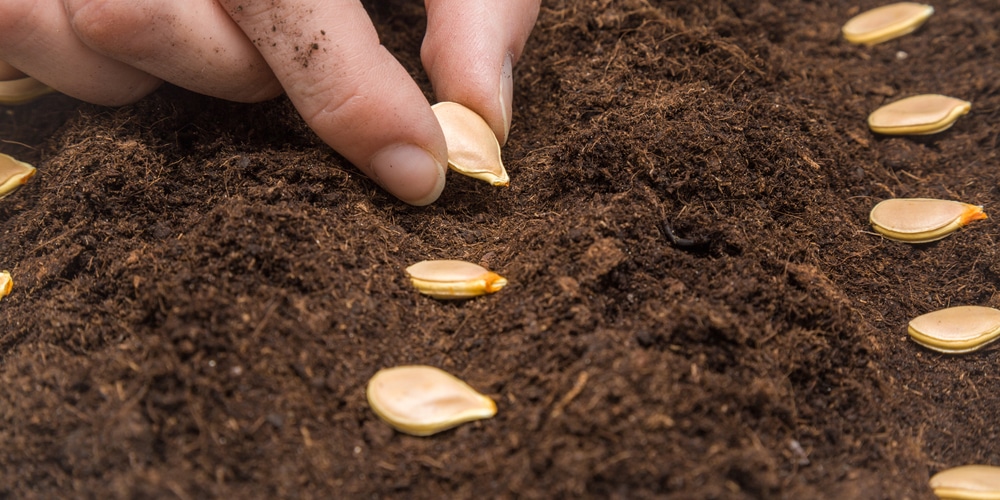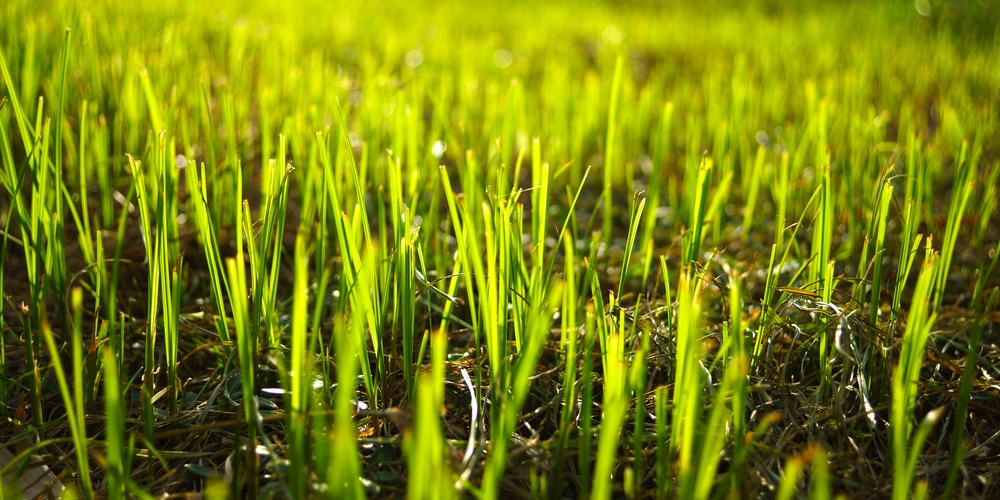After planting seeds in your garden or growing pots, you’ll probably keep on checking if they’ve started sprouting every day. This time is usually exciting, and everyone is curious to see the seeds germinate and begin their growth cycle until they become mature plants. Whether you’re a beginner or an experienced farmer, it’s essential to master germination art. You also need to understand some terminologies used, including the germination rate. This is usually the number of seeds that successfully sprout at a particular time. The entire seed sprouting process will vary from plant to plant, internal and external factors. This article will answer the question, ‘How long does it take for a seed to sprout?’
How long does it take for a seed to sprout?

On average, most plant seeds take 1-2 weeks to sprout. Some few varieties will even take up to 3weeks. This duration is determined by putting all factors and conditions in place. This means that without proper conditions, the germination may take longer or even fail to happen completely. Different seeds have different sprouting timelines, e.g., cabbage-7 to 10days, eggplant- 8 to 13days, beans-7 to 13days, carrots- 10 to 21days, melons-6 to 10days, and tomatoes-6 to 14days.
What factors affect the spouting of a seed?

Seed germination is affected by the following factors:
1. Temperature
This is among the top factors that’ll determine how long your seed will take to sprout. Typically, warm temperatures favor quicker sprouting of seeds compared to cold temperatures. When it’s extremely cold, seeds get into a dormant state. This means that they become inactive until to a point where a relatively warmer climate sets in. This is the reason behind experts recommending the use of heating pads to store seed pans. On average, most seeds require a temperature of 18-24 degrees.
2. Light
Seeds require light to trigger their germination. Different seed types for different plants have varied light requirements. Some need only a small amount of light exposure, whereas others require constant light exposure. Therefore, before you plant any seed, it’s advisable to ask about its light requirement. Alternately, you can research online to find out. If you’re planning to grow your seed indoors, direct sunlight may not be possible to reach the seed. In this case, you need to use artificial light to help the seed sprout.
3. Moisture content
The amount of moisture content in the growing medium will affect the time it’ll take for a seed to sprout. Experts recommend soaking seeds before planting and keeping the soil moist after planting. Moisture helps soften the seeds’ outer layer and the growing medium for easy sprouting. Therefore, you should be keen not to flood the seeds because you’ll increase the risk of rotting.
4. Soil structure
This is the way various soil particles are assembled. The soil should be loose enough to ensure easy penetration for a seed to sprout. When the soil is highly compact, the seed might face resistance trying to sprout because the particles must be broken down first. Soil compactness might result from too much water or using heavy equipment during planting.
5. Oxygen level
Oxygen plays a significant role in both humans and plants. It’s a survival tool. For seeds to sprout properly, adequate oxygen is required. Remember, a seed doesn’t have leaves that can start making its own food through carbon dioxide. Typically, seeds will utilize oxygen until they germinate and form leaves.
What can stop a seed from sprouting?
Sometimes, all the above factors might be in place, but still fail to see sprouting seeds. This can be due to the following:
Old seeds
When seeds are kept for too long, they lose their viability. This means that the germination process becomes weak.
Bad seeds
If you purchase low-quality seeds, you might fail to see a sprouting seed, even if all other conditions are favorable. It’s therefore essential to find a trusted seed supplier to avoid this.
Infections
Some people don’t know that seeds can get infected and fail to sprout. If you use a contaminated container or growing medium, infections will directly get into your seeds and lower viability. It’s essential always to grow seeds in sterilized containers to keep off mold and fungi, which lead to seed decay. You can use a bleaching agent to sterilize your growing medium, container, or pots.
Poor seed placement
Planting seeds too deep might make it difficult for them to sprout. This is because the plant utilizes all nutrients while struggling to sprout.
How long does it take for a seed to sprout: Conclusion
In conclusion, these are some top reasons your seeds might not sprout. Generally, it’s essential to consider all factors when planting seeds to increase the germination rate.
Related article: What to do with carrot sprouts?